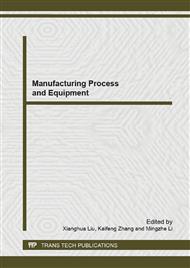p.2471
p.2476
p.2483
p.2489
p.2495
p.2500
p.2504
p.2509
p.2513
Understanding the Effect of Channel Interference and RSSI in IEEE 802.11 PCF
Abstract:
With the increased popularity and deployment of WLANs, a major challenge is how to efficiently assign these available channels in order to optimize the network performance. In this paper, we design a testbed to analyze the effect of Channel Interference and RSSI in IEEE 802.11b PCF. We have observed that the performance of all hosts is subject to important signal fading and interference. We believe that the data collected by our experiments may be of interest to network designers who want to know the effective capabilities before their deployment.
Info:
Periodical:
Pages:
2495-2499
Citation:
Online since:
May 2013
Authors:
Keywords:
Price:
Сopyright:
© 2013 Trans Tech Publications Ltd. All Rights Reserved
Share:
Citation:


